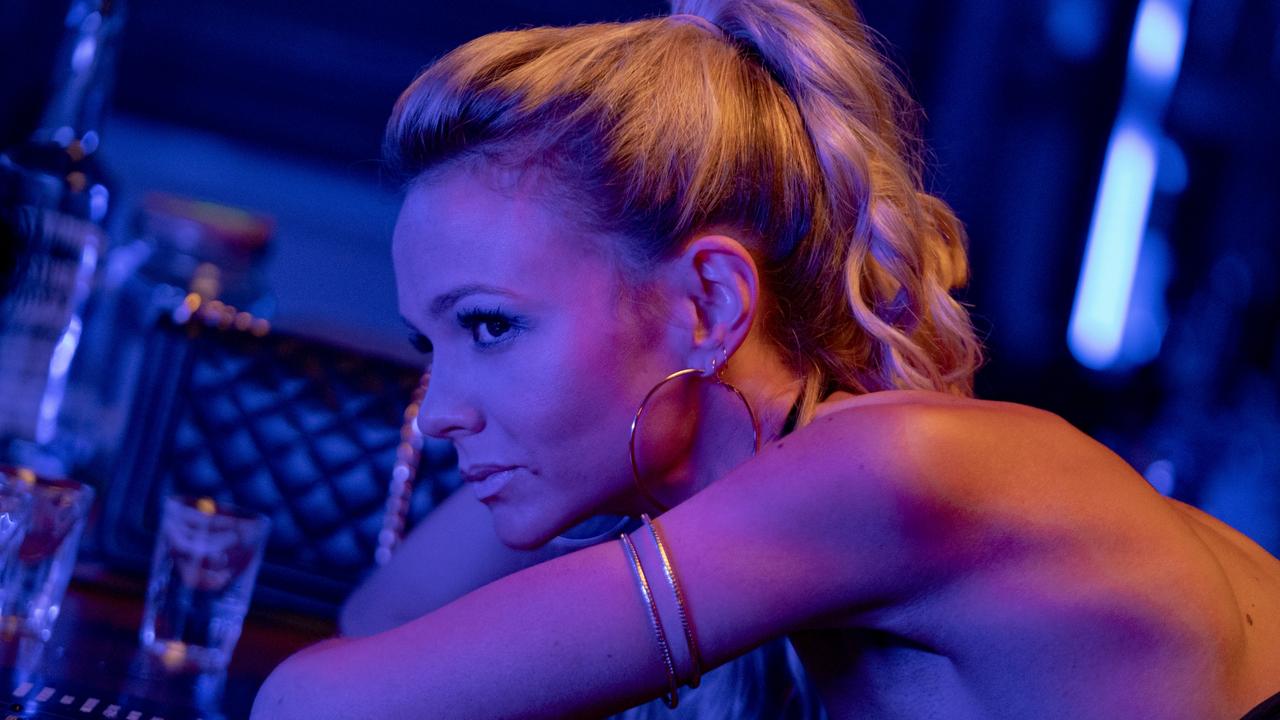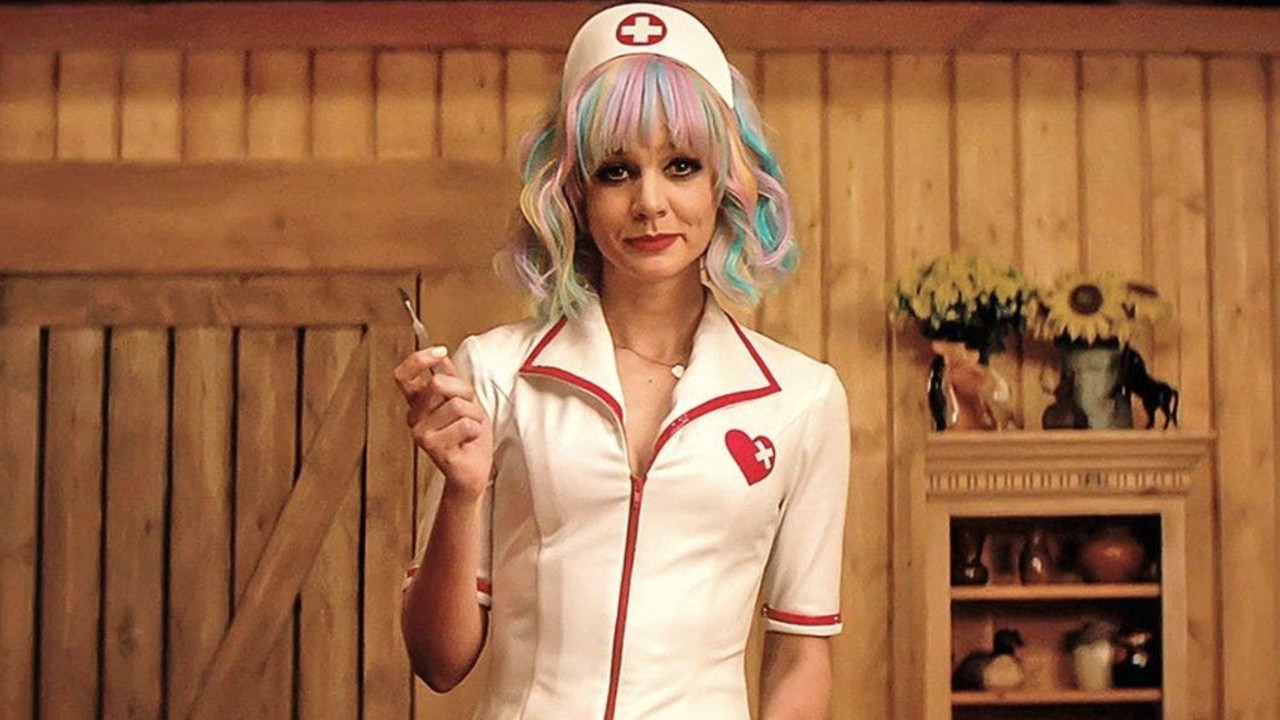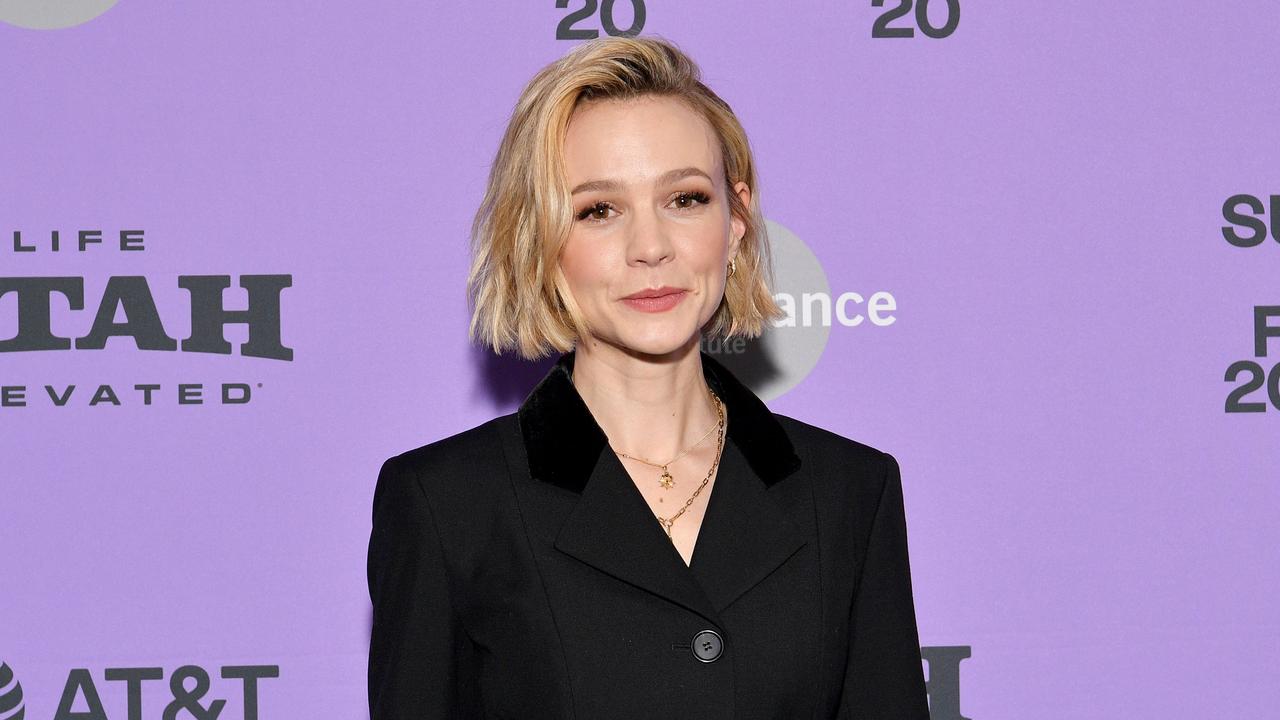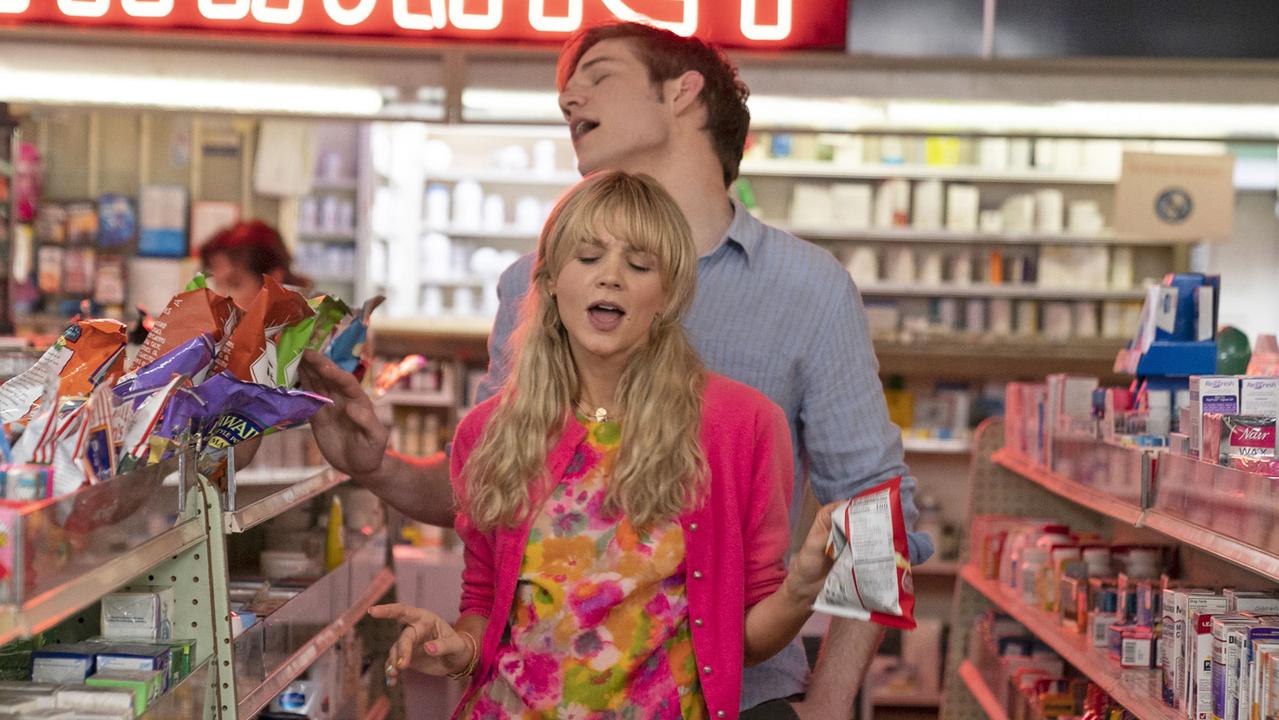Carey Mulligan: ‘Promising Young Woman is asking us to re-examine our past behaviours’
There’s no movie that taps into our current moment more than Promising Young Woman. Carey Mulligan talks to news.com.au about the difficult questions it asks.
There’s no movie that captures the present moment like writer and director Emerald Fennell’s thorny and provocative Promising Young Woman.
The story of an avenging woman who exposes the culture of complicity around sexual assault after a crime is committed against her friend, Promising Young Woman has really resonated at a time when the conversation around rape continues to evolve, calling to account behaviours once excused or laughed off.
Pop-coloured and irreverent, judging by the trailer alone, Promising Young Woman doesn’t look or feel like a movie that’s going to be engaging in such weighty issues with nuance and smarts. But how Promising Young Woman enters into the conversation around sexual assaults is part of its genius, according to actor Carey Mulligan.
“The film isn’t medicine, it isn’t a film that you feel like you should watch,” she told news.com.au. “It’s a film that I think you want to watch because it looks like it’s sort of fun. But once you’re in, I think the film surprises you with the questions that it asks.
“The way Emerald has done it is so clever.”

RELATED: Promising Young Woman is the best performance of Carey Mulligan’s career
Mulligan and Fennell, both 35, are firmly in the awards race with Promising Young Woman, which is expected to be nominated for both Oscars and BAFTA Awards this season. Mulligan has just won the 10th AACTA International Award* for Best Actress in Film while Promising Young Woman took out Best Film.
It’s not surprising that Promising Young Woman has hit a nerve in Australia.
Since the film’s release on New Year’s Day, Australia has had to reckon with three flashpoint moments involving how we frame and talk about sexual assault, starting with survivor Grace Tame being awarded Australian of the Year.
It may seem frivolous to conflate a pop-coloured movie with serious issues of consent and assault, but that’s what art and visual storytelling does – it adds to those conversations in a way that makes people consider a different perspective and empathise.
“It’s so hard to know what is driving these things in our culture but what I do know is that film is a part of it. We’re so informed by what we see on screen, in film and TV,” Mulligan said.
“I think art and film can be a very useful part of the conversation.

RELATED: Disney’s striving for cultural specificity in Raya and the Last Dragon
“You always want to be a part of telling a story that matters and that people think about, and they don’t forget the minute they leave the cinema. And I think Promising Young Woman certainly is adding to a really important conversation that is already happening.
“The film provides an opportunity for people to reflect on that and on ways in which they might have been complicit, even just to the films that we’ve all kind of watched and grown up with.
“The vast majority of the stuff that happens in our film happens in a lot of bro comedies, romantic comedies – very popular films that we’ve all enjoyed. I think it’s taking a second look at stuff like that and asking us to re-examine some of our past behaviours and ways in which we’ve all become inured to this stuff.”
Mulligan is correct in that those rom-coms and bro comedies we’ve all watched and laughed at in the past are complicit in how women, their bodies and their agency are framed by society at large.
And that complicity can carry over into our day-to-day interactions in often banal ways, but also in more significant ways. If you hear the story of a woman who claimed to have been harassed or assaulted – what questions pop into your mind?
Some people will instinctively ask, was she drunk? What was she wearing? Why was she there? Why did she put herself in that position? Why didn’t she report it to the police when it happened?
Promising Young Woman challenges you to ask why you’re asking those questions.

RELATED: Everything new to streaming in March
The connection between real-life and on-screen portrayals of women feed both ways. And Mulligan seeks out female characters who are complex, flawed and feel lived-in and real.
Since breaking out in 2009 drama An Education, for which she was nominated for an Oscar, she has chosen roles of complicated women. There’s the haunted Sissy from Steve McQueen’s Shame, the defiant Bathsheba in Thomas Vinterberg’s Far From A Madding Crowd or the richly drawn Laura in Dee Rees’ Mudbound.
Like Promising Young Woman’s Cassie, these female characters aren’t trying to win an audience over to their cause by being pleasing or likeable.
“I’m interested in seeing women properly portrayed on screen,” Mulligan said. “I think we’re so used to seeing sanitised versions of womanhood and perfect women, that even somebody who’s a little bit grumpy can get a really bad rap.
“The majority of women I know in real life have their good days and their bad days. So that’s what I want to see on screens, people being allowed to be their true selves.
“Cassie is just that, really. For the most part she’s fairly easy going. She has days where she’s tougher and days when she’s not.
“I’m so excited when I read a female character that feels like a real person. It doesn’t happen that often. I thought she was funny. She’s abrasive but she’s kind of funny with it.”

Complicated female lead characters, especially ones seeking vengeance, aren’t always perceived as palatable for a mainstream audience, especially men, but Mulligan said she’s happy that Promising Young Woman has been embraced by a broad audience – something that’s maybe been helped by COVID circumstances which has forced lockdowns around the world.
“What I’ve been so pleased about is how un-gendered the response has been. I think there potentially was a world where this film came out in a normal world and could’ve been sort of branded as a ‘chick flick’, a film that women gravitated towards, but men weren’t interested in.
“Or we’re preaching to the choir in that people who went to see this film were already people who were thinking a lot about this subject.
“Because of the way things have panned out and that a lot of people are seeing this at home, streaming it, I think we’ve reached a broader audience, people who might not necessarily have made a date to go out and see this film.
“In that sense, we might’ve reached more people who would not ordinarily have seen the film. Men have as much passion for the film as women, and that’s been really lovely.
“Sometimes there can be a bit of an empathy gap between genders, where women feel very strongly about a female character and men feel very strongly about a male protagonist. A lot of men have felt really emotionally taken by and involved in Cassie’s story.”
Of course, movies alone don’t change the world, but if Promising Young Woman makes enough people reconsider their perspectives on something as significant as sexual assault — especially with that shocking but, in Mulligan’s words, “very honest” ending — then it’s not as frivolous as it might seem.
20TH AACTA INTERNATIONAL AWARD WINNERS
Best Film – Promising Young Woman
Best Direction in Film – Chloe Zhao, Nomadland
Best Screenplay in Film – Aaron Sorkin, The Trial of the Chicago 7
Best Lead Actress in Film – Carey Mulligan, Promising Young Woman
Best Lead Actor in Film – Chadwick Boseman, Ma Rainey’s Black Bottom
Best Supporting Actress in Film – Olivia Colman, The Father
Best Supporting Actor in Film – Sacha Baron Cohen, The Trial of the Chicago 7
Best Drama Series – The Queen’s Gambit
Best Comedy Series – Schitt’s Creek
Best Actress in a Series – Anya Taylor-Joy, The Queen’s Gambit
Best Actor in a Series – Aaron Pedersen, Mystery Road
*The writer is a member of AACTA and voted in the 10th AACTA International Awards
Promising Young Woman is in cinemas now
Share your movies and TV obsessions | @wenleima




